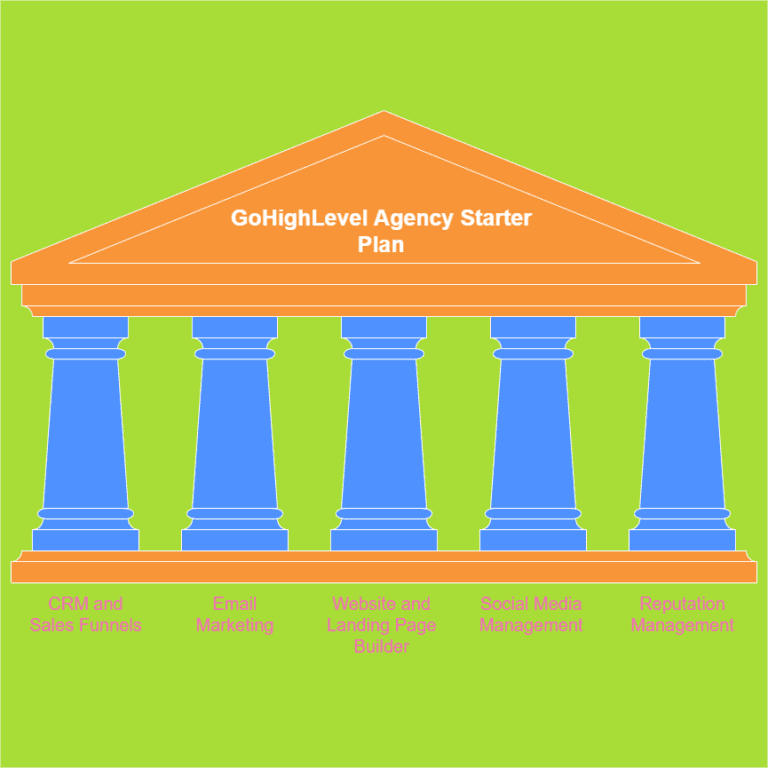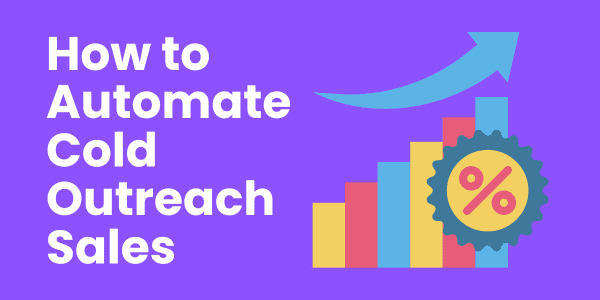Revolutionizing Real Estate: Marketing Automation for Real Estate Agents
Through my experience of closely working with real estate agents, I am aware of how crucial it is for agents to promote their services and listings effectively. In today’s fast-paced world, manually managing every aspect of your marketing strategy can be overwhelming and time-consuming. That’s where real estate marketing automation software comes into play.
In this article, we’ll dive deep into the benefits of automated systems and workflows for lead management, customer relationship management (CRM), email campaigns, open houses, past clients, drip campaigns and more. We’ll explore how these tools can help you streamline your processes while still maintaining a personal touch with your clients.
Furthermore, we’ll discuss some of the top marketing automation tools available in the market today that are specifically designed for real estate professionals. These platforms offer features such as automatically sending personalized voicemails or emails to leads based on their behaviour or preferences. Additionally, they allow you to send automated follow-up emails after providing a property valuation or meeting with potential buyers.
We will also cover some best practices when it comes to using real estate marketing automation software effectively. From creating landing pages that convert visitors into leads to setting up effective sales funnels that nurture those leads until they become customers – we’ve got you covered!
By the end of this post, you will have a comprehensive grasp on how real estate marketing automation can boost your business. So let’s get started!
Table of Contents:
- Leveraging Marketing Automation for Real Estate Agents
- Adopting a Marketing Automation Workflow
- Exploring Automation Platforms and Tools
- Artificial Intelligence in Real Estate Marketing Automation
- Integrating Solutions with CRM Systems
- FAQs in Relation to Marketing Automation for Real Estate Agents
- Conclusion
Leveraging Marketing Automation for Real Estate Agents
Real estate agents are always looking for ways to maximize their lead generation and follow through. Marketing automation can be a great tool to help them do just that. Real estate agents can utilize marketing automation to make collecting leads, fostering relationships with customers and prospects, as well as automating mundane tasks such as emailing or sending WhatsApp messages simpler.
Adopting a marketing automation workflow is essential for success in this area. This involves setting up automated processes such as scheduling emails and text messages at specific times or days of the week so that they go out on autopilot without any manual effort from the agent themselves. It also includes creating personalized campaigns based on buyer/seller profiles, market position and interests to ensure maximum engagement with each contact. Additionally, tracking analytics allows agents to see which campaigns are working best so they can adjust accordingly if needed.
Exploring different automation platforms and tools is key when it comes to making sure an agent’s marketing efforts are successful. There are many options available ranging from free software solutions like MailChimp or Constant Contact to more robust systems like Salesforce Pardot or HubSpot CRM, which provide greater functionality for larger organizations with complex needs. Each platform offers its own unique features so it’s important for agents to evaluate what works best for their business before committing to one particular solution.
Artificial intelligence (AI) is becoming increasingly prevalent in real estate marketing automation today due mainly in part by advancements in natural language processing (NLP). AI-powered chatbots can be used by agents to quickly respond to inquiries about listings or other services offered while providing personalized customer service 24/7 even when no one is available physically at the office location itself. NLP algorithms allow bots “read” incoming messages from prospective buyers/sellers then recommend relevant content based on user intent – all without requiring any human intervention whatsoever.
By utilizing marketing automation, real estate agents can boost their efficiency and productivity while concentrating on activities that are key to the success of their business. By adopting a marketing automation workflow, they can take advantage of these benefits while streamlining processes and improving customer experience.
Key Takeaway: Real estate agents can maximize their lead generation and follow through with marketing automation. By leveraging AI-powered tools, they can automate repetitive tasks such as scheduling emails and texts while providing personalized customer service 247. Additionally, NLP algorithms allow bots to “read” incoming messages then recommend relevant content based on user intent – a real time saver.
Adopting a Marketing Automation Workflow
Marketing automation is a powerful tool for real estate agents. It allows them to streamline their marketing efforts, automate tedious tasks, and increase lead generation. However, it’s important to understand how to set up an effective workflow before diving in headfirst.
The first step is to identify the target audience and create buyer personas. This will help determine which marketing channels are most effective for reaching potential buyers or sellers. Once the target market has been identified, it’s time to develop a strategy that includes content creation, distribution channels, and tracking tools such as analytics software or customer relationship management (CRM) systems.
Next comes creating automated campaigns based on these strategies. This could include email sequences triggered by user actions like subscribing or downloading content from your website; retargeting ads that appear when someone visits certain pages of your site; social media posts scheduled in advance; and more. Automated campaigns should be designed with specific goals in mind—such as increasing engagement with prospects—and tested regularly for effectiveness against those goals so adjustments can be made if necessary.
Integrating CRM systems into your workflow is an absolute must if you want to see success with marketing automation. By providing visibility into customer data across all channels of communication—email, web forms, phone calls—it enables you to get a birds-eye view and quickly jump on opportunities when they arise. Furthermore, many platforms offer AI capabilities that let users tailor automated campaigns according to user behavior patterns over time or segment audiences based on factors like location or demographics information gathered from sources such as Google Analytics or Facebook Ads Manager. In short, these platforms provide the perfect platform to launch a successful marketing campaign.
Key Takeaway: Real estate agents can use marketing automation to streamline their workflows, automate tedious tasks, and increase lead generation. To do this successfully they need to identify their target audience and develop a strategy with content creation, distribution channels, and tracking tools in place. Integrating CRM systems into the workflow is key for success as it provides visibility into customer data across all communication platforms while also offering AI capabilities that tailor automated campaigns according to user behavior patterns over time.
Exploring Automation Platforms and Tools
Real estate agents are increasingly turning to marketing automation platforms and tools to scale their lead generation efforts. A variety of technologies are available to assist in the scaling up of lead generation efforts by real estate agents, ranging from straightforward email marketing programs to advanced AI-driven CRM systems. In order to make the most out of these tools, it’s important for real estate professionals to understand the different options and how they can be used together.
Email automation solutions are a widely used method of communicating with potential customers. It allows users to create custom campaigns that target specific segments or individual contacts based on their interests and needs. This type of tool also makes it easy to track open rates, click-throughs, unsubscribes, and other key metrics related to email performance. Additionally, many email providers offer integration with third-party CRMs such as Salesforce or HubSpot so that all data can be managed in one place.
AI-powered CRM systems provide a more comprehensive solution by combining automated customer segmentation with powerful analytics capabilities. These systems allow users to create personalized messages tailored specifically for each contact based on their past interactions with your business—allowing you reach them at exactly the right time when they’re ready to buy or sell property through your services. AI-driven CRMs also come equipped with features like predictive analytics which can help agents anticipate future trends in the market before making decisions about where best to allocate resources or personnel accordingly.
Exploring automation platforms and tools is an important part of scaling lead generation and follow-through in real estate marketing. AI has completely changed the manner in which marketers are able to streamline their processes, thus permitting them to both boost productivity and reduce expenditures.
Key Takeaway: Real estate agents are taking advantage of automated marketing solutions such as email campaigns and AI-driven CRMs to streamline their lead generation process. These tools provide powerful insights into customer behavior, enabling professionals to tailor messages and optimize resources for maximum effectiveness.
Artificial Intelligence in Real Estate Marketing Automation
Real estate agents have long sought to make their marketing efforts more efficient. AI is aiding real estate agents in streamlining their promotional activities. AI-driven marketing automation allows real estate agents to reach more potential customers, target specific audiences, and optimize campaigns for maximum return on investment (ROI).
When it comes to targeting the right audience, AI can help identify which prospects are most likely to convert into leads or sales. Real estate professionals are increasingly turning to predictive analytics to maximize the return on their investment for each campaign. Utilizing AI, with the aid of ML algorithms and NLP, allows for swift and precise data analysis to pinpoint optimal targets for specific offers or campaigns.
AI-powered chatbots can be employed as virtual assistants in customer service departments, providing answers to FAQs and aiding with basic tasks such as booking appointments or giving directions. Chatbots also enable businesses to interact with customers 24/7 without having a human representative available at all times – this improves customer satisfaction while reducing costs associated with staffing a call center around the clock.
Another area where AI is being used in real estate marketing automation is content creation and optimization. AI can be utilized to generate content automatically with NLP algorithms, utilizing user input such as words, themes and visuals in order to save time that would have been used for manual production. Additionally, artificial intelligence solutions are able to optimize existing content for search engine rankings by analyzing website traffic patterns and making adjustments accordingly – this helps ensure maximum visibility for websites in organic search results pages (SERPs).
Integrating an AI solution with existing CRM systems can give real estate agents the upper hand, granting them access to vital information about prospective sellers and buyers in a jiffy and allowing them to tailor their outreach strategies accordingly. This kind of personalization can go a long way towards boosting lead conversion rates as personalized messages have been known to hit home better than generic ones that are sent out en masse via email blasts or direct mail campaigns.
Artificial Intelligence in Real Estate Marketing Automation has the potential to revolutionize how agents market their services and reach new clients. By integrating solutions with CRM systems, agents can streamline processes for maximum efficiency and cost savings.
Key Takeaway: Real estate agents are leveraging AI-driven marketing automation to optimize campaigns for maximum ROI, utilize chatbots as virtual assistants and generate content from scratch. With the help of predictive analytics and natural language processing algorithms, real estate professionals can personalize their outreach strategies to maximize lead conversion rates.
Integrating Solutions with CRM Systems
Real estate agents can increase their lead generation and follow-through by leveraging marketing automation. Connecting solutions with CRM platforms is a key factor in the process, allowing for more effective data handling. Zapier is a great platform to use for integrating real estate marketing solutions into existing CRM and management systems.
Using Zapier, agents can connect different apps together in order to automate workflows and streamline processes. Agents can use Zapier to configure automated messages that are activated when someone subscribes on their website or joins them on social media, allowing them to stay connected with prospective customers without having to send out communications manually each time. This allows agents to stay in touch with potential leads without having to manually send out messages each time someone takes action.
By tracking key metrics such as open rates, click-through rates, conversions etc., agents can identify areas where they need improvement or adjust strategies if needed. This helps them get the most out of their efforts while maximizing ROI from their campaigns.
In addition to connecting different apps together, Zapier also has features that enable users to create custom automations based on specific criteria or triggers within the system itself – such as adding contacts who have recently taken certain actions (e.g., subscribed). With these types of automations in place, agents can ensure that no leads slip through the cracks while ensuring consistent follow-up throughout all stages of the sales cycle – from initial contact right through closing deals.
Overall, using Zapier for integrating real estate marketing solutions with companies’ current CRM and management systems offers many benefits for both small businesses and larger enterprises alike – allowing them to save time while increasing efficiency at every step along the way. By taking advantage of its features like automation creation tools and analytics tracking capabilities, real estate agents will be able to maximize lead generation efforts while improving customer experience across all channels.
Key Takeaway: Real estate agents can use Zapier to automate their marketing efforts and maximize lead generation. It allows for connecting different apps together, creating custom automations based on specific criteria, as well as tracking performance metrics – all of which help ensure efficient follow-up throughout the sales cycle while increasing ROI from campaigns.
FAQs in Relation to Marketing Automation for Real Estate Agents
What is real estate marketing automation?
Real estate marketing automation is a process of leveraging technology to automate repetitive tasks in the marketing and sales processes. It enables real estate professionals to streamline their lead generation, follow-up, and communication activities with potential customers. Automation tools can help track customer interactions across multiple channels such as email, SMS, social media platforms or websites; allowing for efficient segmentation and targeted messaging that increases conversions while reducing time spent on manual tasks. Automation also enables real estate professionals to track customer engagement and analyze the effectiveness of their campaigns.
Will real estate agents become automated?
No, real estate agents will not become automated. Though technology may streamline certain aspects of a real estate agent’s job, the need for an experienced professional to apply human judgement and expertise in areas such as building relationships with clients, negotiating deals, understanding market trends and local laws, managing paperwork and more is still essential. Automation may assist in certain areas but it cannot replace an experienced professional who has the necessary skillset for success in this field and of course the personal touch goes a very long way.
How does marketing help real estate agents?
Marketing can help real estate agents increase their visibility and reach potential clients. By utilizing digital marketing techniques, such as SEO, social media campaigns, content creation, email outreach and paid advertising, real estate agents can gain exposure to prospective buyers or sellers while creating brand recognition. This helps to generate leads that could result in sales opportunities. Additionally, effective marketing helps build relationships with existing customers by providing helpful information that reinforces the value of an agent’s services.
Why do real estate agents need digital marketing?
Real estate agents need digital marketing to reach potential clients, build ‘know, like and trust’ with them, and create an effective sales funnel. Digital marketing allows agents to target their audience more precisely and effectively than traditional methods. It also helps in creating visibility for their brand and increasing lead generation by providing useful content that can be shared on social media platforms. Furthermore, it enables real estate agents to track performance metrics such as website visits, conversions rates, leads generated etc., which help them optimize their strategies for better results.
Conclusion
By exploring the various platforms, tools, and AI solutions available for real estate marketing automation, they can create efficient workflows that integrate with current CRM systems. By utilizing the right combination of these automated marketing technologies, real estate agents can boost lead generation and conversion rates.




